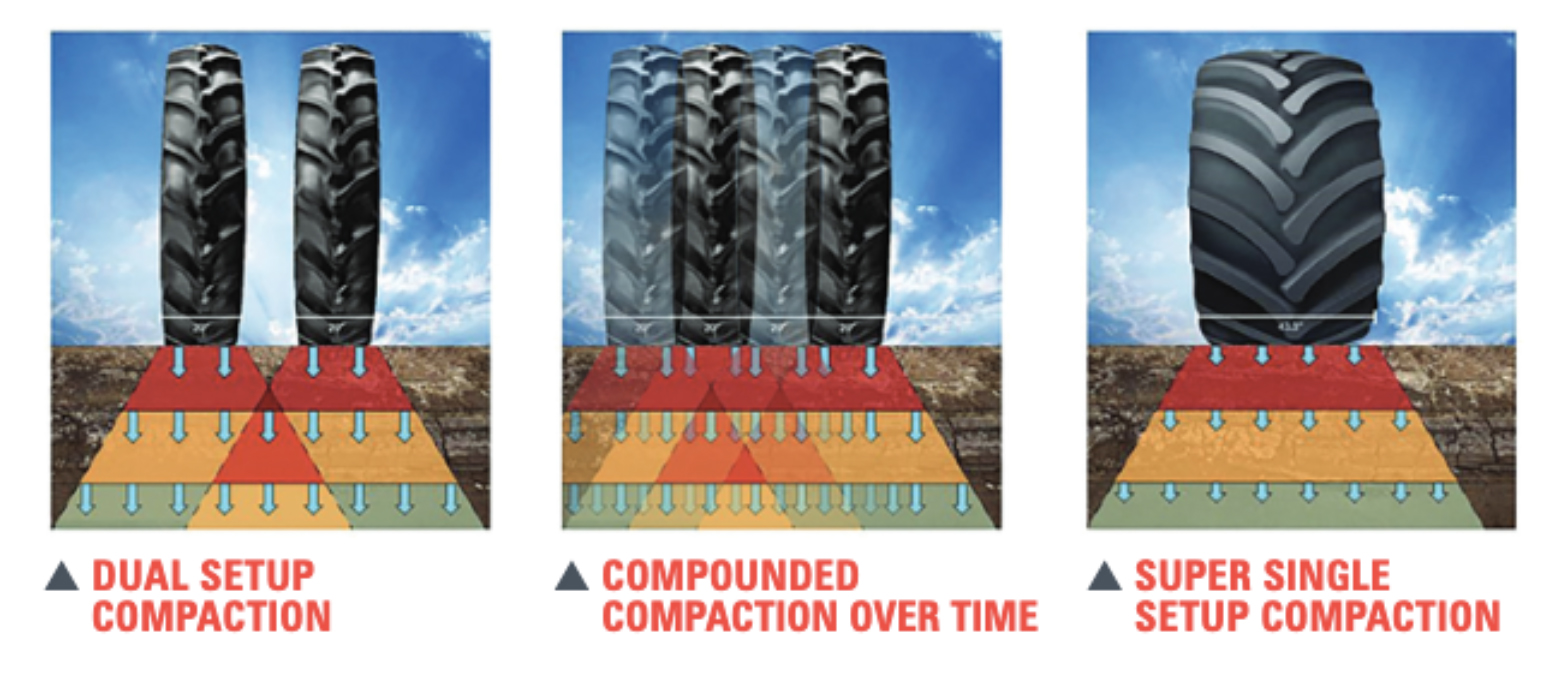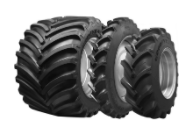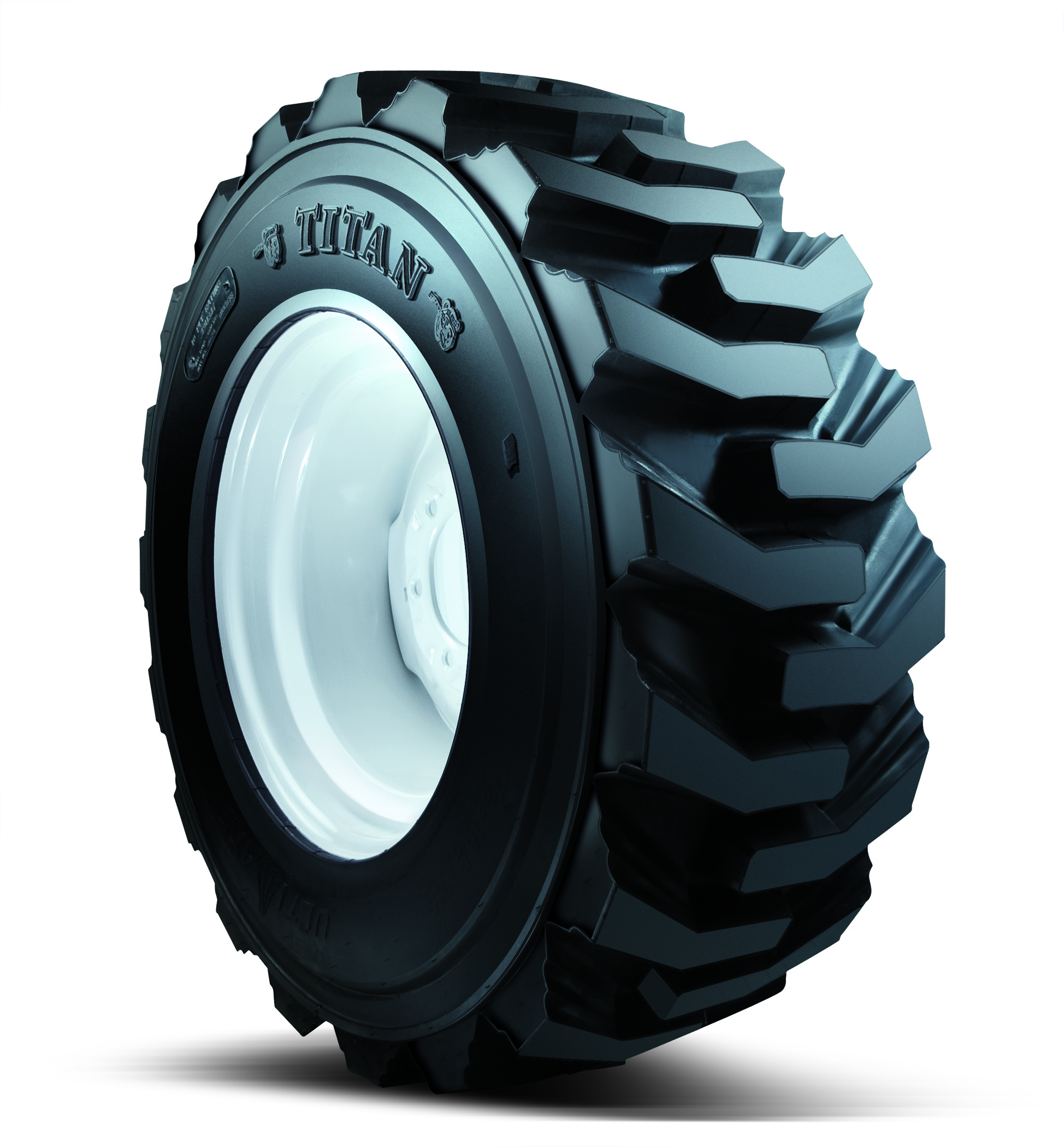Gaining Traction Home | HOW-TOS
Estimated Reading Time: 3 Min
HOW TO REDUCE PINCH ROW SOIL COMPACTION
Minimizing soil disturbance and preserving the organic residue are the cornerstones of no-till and reduced-till farming — that’s why farmers work to limit field traffic whenever possible. Even one pass across the field with today’s heavier tractors and central-fill planters can cause significant soil disturbance and compaction. But with the right tire configuration, you can prevent soil compaction, or at least significantly reduce it. Here’s how.
TRACTORS: NARROW DUALS VS. SUPER SINGLES
Estimates show that up to 80% of total soil compaction is caused by the tractor (source). Pinch row compaction is the result of running standard dual tires, which disturb the vital residue that no-till farmers are consistently working to preserve. Not to mention they’re running the narrow tires on the next year’s row. The pinch row effect from narrow duals has shown a negative impact on yields through stunted crops, restricted root development, reduced moisture flow to seedlings and poor seed germination.
If you’re not running in row crops post emergence, there’s no reason to run narrow duals. By switching to tires using low sidewall (LSW) technology, you can significantly increase the tire footprint while reducing ground-bearing pressure.
COMPARING THE FOOTPRINT
480/80R50 duals on the rear and 420/85R34 duals on the front results in the following:
-
Total contact area: 2,488 square inches
-
26 psi rear/20 psi front
Goodyear LSW1100/45R46 single rears and LSW1000/40R32 single fronts results in the following:
-
Total contact area: 3,652 square inches (30% improvement)
-
15 psi rear/12 psi front
FIELD STUDY RESULTS
Working with agronomists at Wheat Tech Agronomy, Titan conducted a field study on two identical test plots planting corn in Sikeston, Missouri — one planted with a tractor running a narrow dual tire configuration, the other planted with Goodyear Super Single LSW tires. Results showed that the test plot with the Super Single tires yielded five more bushels per acre compared to the duals. An additional five bushels per acre at $5.54 per bushel on 1,500 acres could add an extra $41,550 in annual profit by running Goodyear Super Single tires.
COMPOUNDED COMPACTION
As demonstrated below, the effect of pinch row compaction from narrow duals is only compounded over time and with each pass across the field.
PLANTERS: RADIAL VS. BIAS PLY
Central-fill planter traffic often increases pinch row compaction as well. Planting often happens in wet soil conditions and the compaction created averages nearly 20 bushels per acre of yield loss. (Source: Beck’s Hybrids agronomist, yield loss found between pinch rows and wing rows on a center-fill planter in 30-inch rows.)
Here again tire configuration can make a difference. While bias tires have been the traditional choice for most planters and implements due to their lower cost, radial tires offer significant reductions to inflation pressures resulting in reduced ground-bearing pressure and reduced soil compaction. For example, 12.5L15 bias tires would typically run at approximately 90 psi, whereas a comparable 230/75R15 radial would run at approximately 56 psi.
Looking for tires to reduce your pinch row soil compaction? Find your local Titan Tire dealer.
Featured Stories
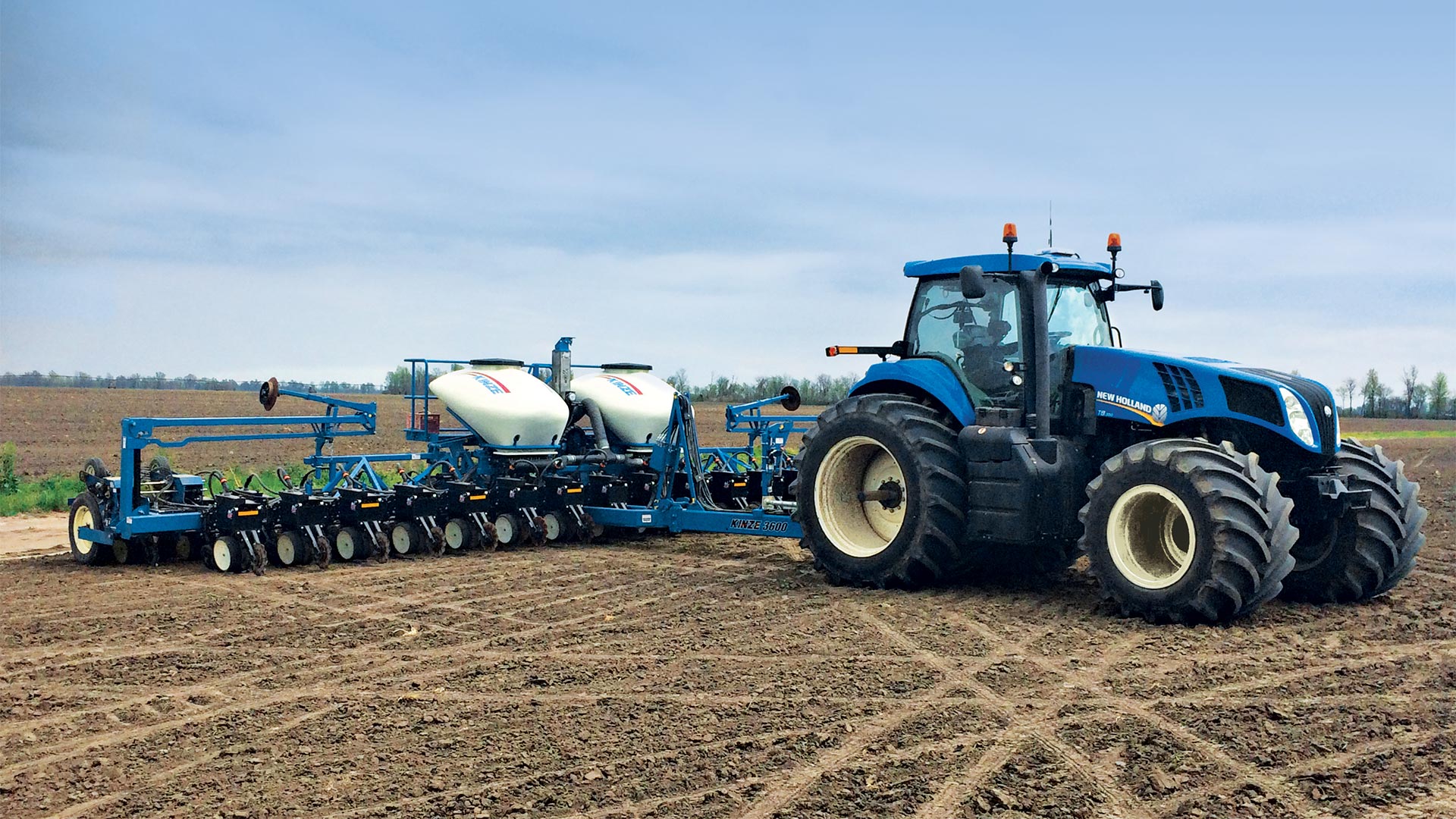
SUPER SINGLES VS. DUALS: WHICH IS RIGHT FOR YOU?
Reduce soil compaction during the growing season by opting for LSW Super Single tires over duals.
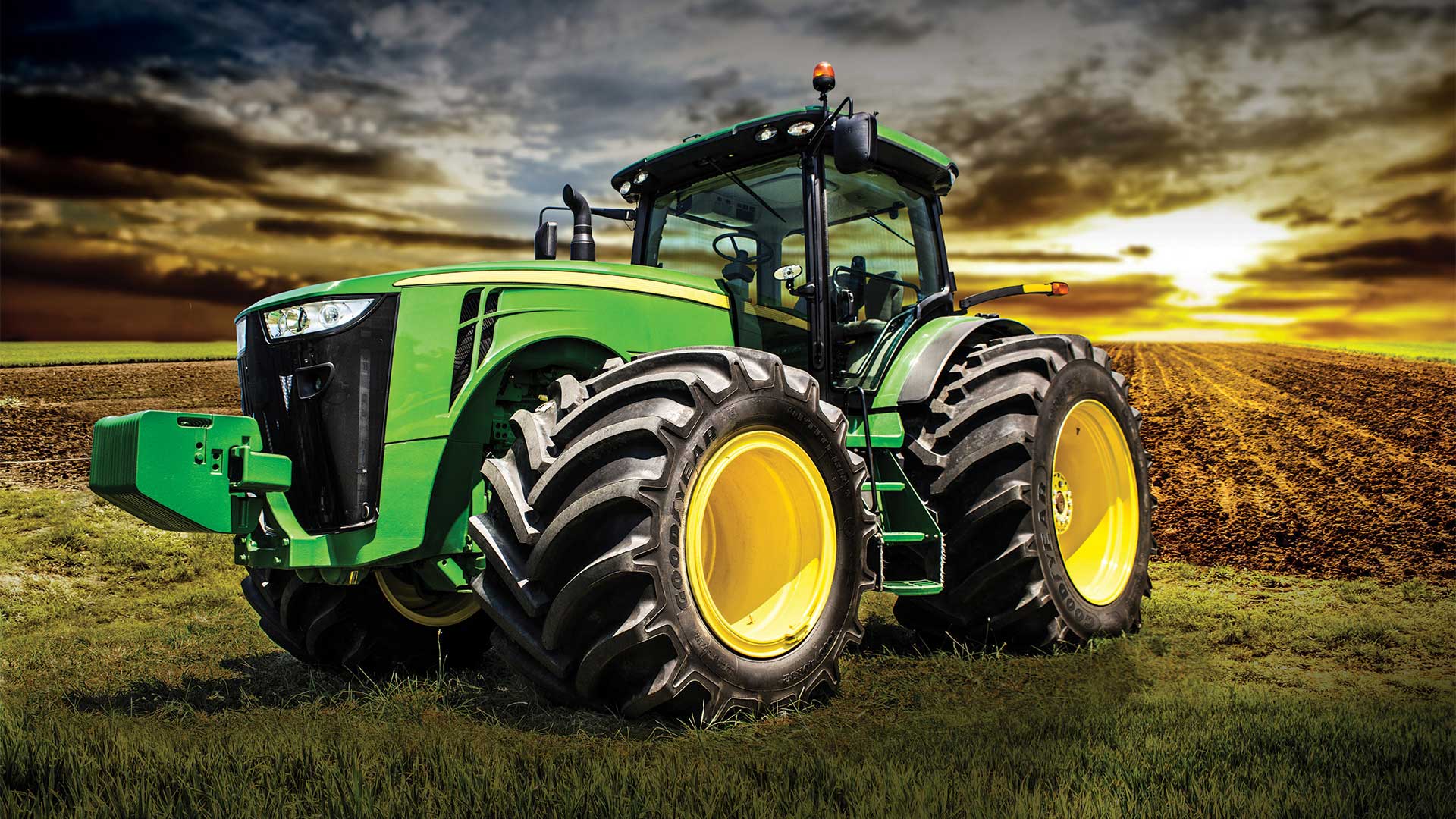
HOW TO REDUCE PINCH ROW SOIL COMPACTION
If you’re looking to increase crop yield by reducing pinch row compaction, it’s time to rethink your tire size and tire type to make it happen.
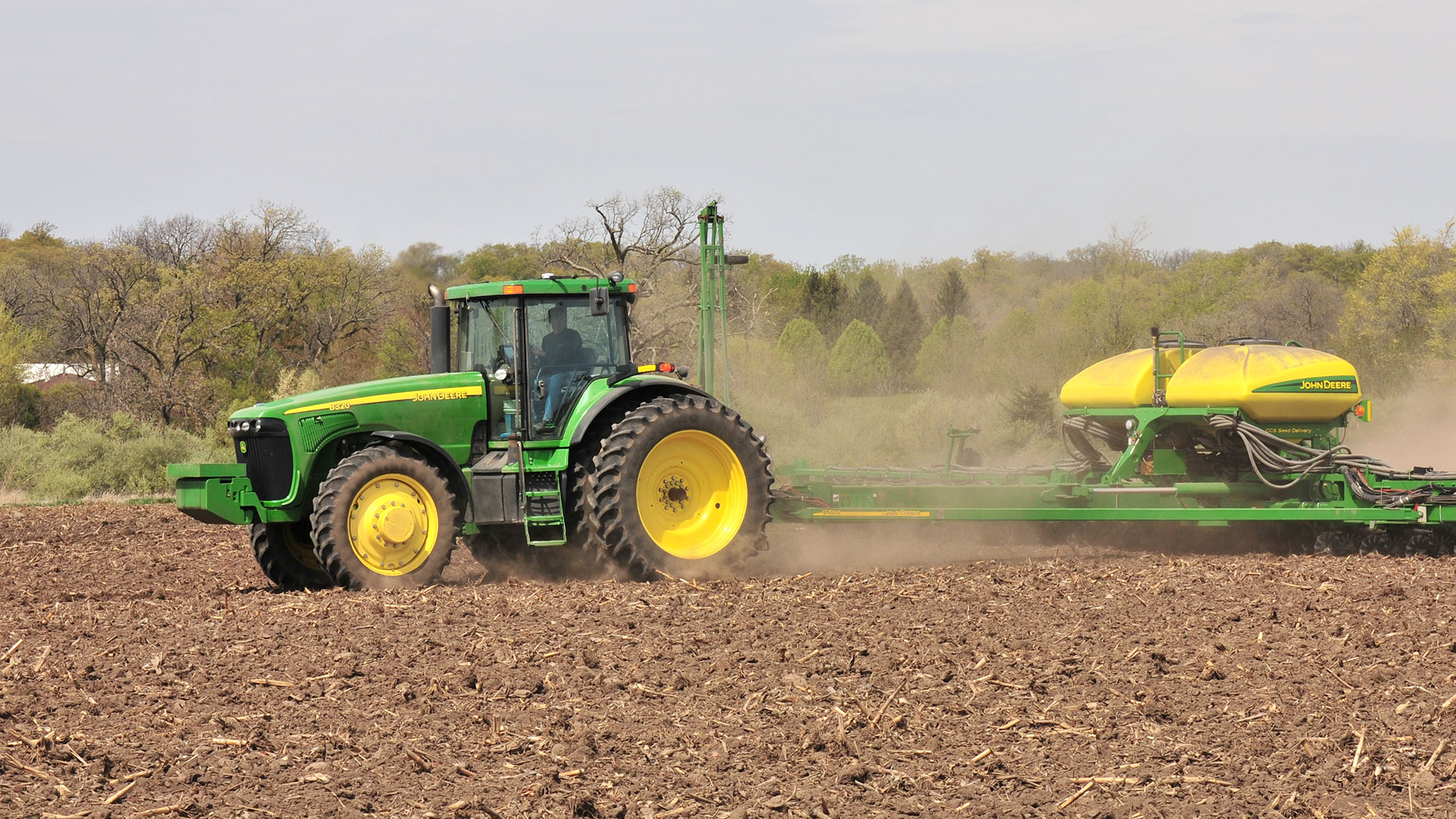
HOW TO REDUCE ROAD LOPE AND POWER HOP
Understand what causes road lope and power hop so you can diagnose the problem and correct it.
